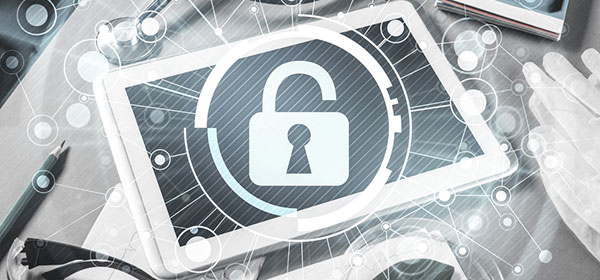We spend a lot of time warning you about scams and safeguarding you from cybercrime, but all that could be for naught if you use a predictable password.
We’re aware of the importance of a secure password to protect our computers and online activities from hackers. But many people still seem to let these warnings go by the wayside.
Each year, security firms release a list of the worst passwords used by internet users and, every year, the worst passwords seem to be a variation of ‘12345678’ or, even lazier, words such as ‘password’, which moved from number two on last year’s list to number eight this year.
This year, it seems, the trend continues. In fact, according to password security firm, Keeper, one in five internet users still use the password ‘123456’. And, if you think that’s not very clever, well, adding a few extra digits doesn’t make the password any more difficult to crack. Number two on the list is ‘123456789’ and, at number six, ‘1234567890’.
Another favourite of unwary internet users is ‘qwerty’ and ‘password’, which sit at number three and number eight, respectively.
As you can see, it’s amazing at how much of our seemingly precious personal information is protected by such inadequate passwords. Of the 10 million passwords collected, ‘123456’ accounted for 17 per cent of them.
Here’s a look at the 25 worst passwords:
1. 123456
2. 123456789
3. qwerty
4. 12345678
5. 111111
6. 1234567890
7. 1234567
8. password
9. 123123
10. 987654321
11. qwertyuiop
12. mynoob
13. 123321
14. 666666
15. 18atcskd2w
16. 7777777
17. 1q2w3e4r
18. 654321
19. 555555
20. 3rjs1la7qe
21. google
22. 1q2w3e4r5t
23. 123qwe
24. zxcvbnm
25. 1q2w3e
You’ll notice that ‘zxcvbnm’ at number 17 and ‘1q2w3e4r’ at number 24. When compared to ‘qwerty’ they may seem like safer passwords to the naked eye, but upon closer inspection of your keyboard, you’ll realise that they’re no more secure than ‘qwerty’. Then again, ‘google’, at number 21, probably isn’t the smartest choice either.
The passwords at number 15 and 20, which appear to be random numbers, have been blamed on random 10-character passwords created by automatic password generators, proving that not all password security software is created equally – or proving that they are.
The list shows the importance of creating secure passwords. We recently published an article about how to create the perfect password – one that hackers and ‘bots’ would have to test billions of billions of billions of times before they crack the code.
According to Keeper: “The list of most-frequently used passwords has changed little over the past few years.
“While it’s important for users to be aware of risks, a sizeable minority are never going to take the time or effort to protect themselves. IT administrators and website operators must do the job for them.”
“We can criticise all we want about the chronic failure of users to employ strong passwords,” Keeper concluded, “But the bigger responsibility lies with website owners who fail to enforce the most basic password complexity policies.”
So, if your password is on this list, or even if you have a similar variation, it’s time you got wise and made a stronger password. Check out our related articles for further password advice and options.
Read more Digital Trends
Related articles:
Password problems solved
Best password managers
Security for your passwords
Never again forget your passwords

